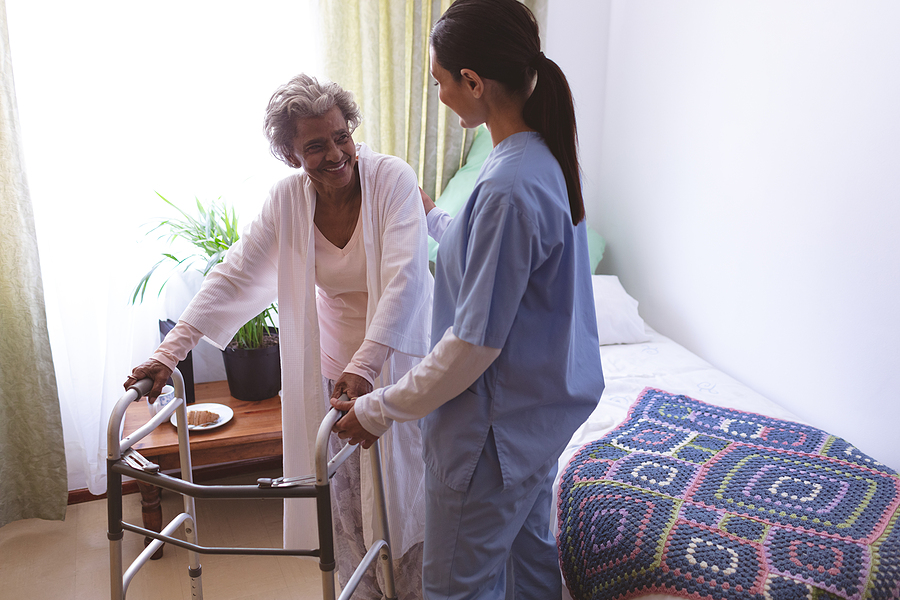Companion Care at Home Helps Seniors in the Earliest Stages of Dementia

Coping with a new diagnosis of dementia, even in the early stages of the illness, is a big deal for aging adults and the families who love them. There are some big decisions looming and seniors may want to do all that they can to remain as independent as possible. Companion care at home can bridge the gap between more hands-on care and helping seniors and family members feel comfortable about seniors having help when they need it.
Customized Care Plans
Every senior who has dementia has a slightly different experience from diagnosis to the progression of their illness. What that means is that each of them needs their own individualized care plan. Home care providers understand this and are able to meet seniors where they are. Caregivers work to understand the senior’s needs and to help customize their care plan.
Companionship and Emotional Support
The big goal of companion care at home is to offer support and companionship that meets emotional needs. This is a huge benefit for seniors who have recently been diagnosed with dementia. Meaningful conversations and someone to participate in activities also offers cognitive stimulation for seniors, which is essential for people facing progressive cognitive illnesses.
Cognitive Stimulation
Besides conversation, caregivers are able to offer other types of help with cognitive stimulation, too. Home care providers are able to help seniors with activities that stimulate memory, work through problem-solving skills, and stimulate creativity. Engaging with different activities every day helps to keep seniors’ brains working.
Promoting Independence
One of the reasons that seniors with dementia might worry about having elder care providers there with them is that they might lose some of their independence. But the reality is that having additional help doesn’t remove independence. It actually can help aging adults to maintain more of their independence, especially when caregivers help to remind them to follow their routines each day.
Improved Family Communication
Senior care providers also help to bridge communication gaps between aging adults and family members. They can also keep detailed logs that help everyone involved to know what is happening each day at a glance. This is valuable information that healthcare professionals can also use to manage health issues for seniors.
Respite for Family Caregivers
Taking care of seniors with dementia can be really tough for family caregivers to do. It’s hard to watch someone change, especially when those changes are happening because of a cognitive illness. Caregivers can stay with seniors, ensuring that they are safe and in good hands while family caregivers take a break from caregiving for a little while. When caregivers return, they’re in a better position to get right back into handling their seniors’ needs.
Companion care at home is an excellent starting point for seniors who have recently been diagnosed with dementia. As they experience further cognitive changes, they’ll likely need more help with a wider range of tasks, and having worked with home care services early in their illness can help them to be more receptive to help later on.
Subscribe
Date: November 16, 2023


